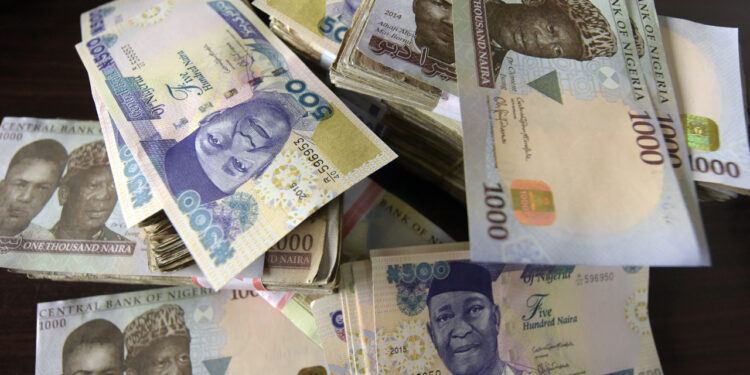Every banknote remains legal tender and should not be rejected by anyone, the Central Bank of Nigeria has disclosed.
This is as the apex bank directed all its branches across the country to continue to issue different denominations of the old and redesigned banknotes in adequate quantities to deposit money banks.
The apex bank stressed that every banknote that it has issued remains legal tender and should not be rejected by anyone. This disclosure was contained in a public statement issued by the Director of Corporate Communications of the CBN, Isah Abdulmumin, on Wednesday, in Abuja.

It was titled, ‘All Banknotes Issued by the CBN Remain Legal Tender.’ Isa said the directive follows reports of scarcity of cash across some major cities in the country despite initial assurances by the CBN of sufficient cash stocks in all locations across the country.
The statement read, “Our attention has again been drawn to reports of a scarcity of cash across some major cities in the country despite assurances of sufficient cash stocks in all locations across the country. There have also been reports of anxiety among some members of the public over the legality or otherwise of old Naira banknotes.
“For the avoidance of doubt, while reiterating that there are sufficient banknotes across the country for all normal economic activity, we wish to state unambiguously that every banknote issued by the Central Bank of Nigeria remains legal tender and should not be rejected by anyone, as stipulated in Section 20(5) of the CBN Act, 2007.
“Accordingly, branches of the CBN across the country have been directed to continue to issue different denominations of old and redesigned banknotes in adequate quantities to deposit money banks for onward circulation to bank customers.
“We wish to restate that all denominations of banknotes issued by the Central Bank of Nigeria remain legal tender. In line with Section 20(5) of the CBN Act, 2007, no one should refuse to accept the Naira as a means of payment.
“Consequently, members of the public are advised to accept all CBN-issued banknotes currently in circulation and guard against panic withdrawals. We reaffirm that there is sufficient stock of currency notes to facilitate normal economic activities.”
Isa further advised members of the public to reduce the pressure on the use of physical cash and embrace alternative modes of payment.
Recently, the apex bank issued a directory to the public that it had sufficient stock of currency notes following alleged reports of scarcity of cash in banks, automated teller machines, Points of Sale, and Bureaux de Change in some major cities across the country.
The bank noted that the cash scarcity in some locations was due to high volume withdrawals from CBN branches by Deposit Money Banks and panic withdrawals by customers from the ATMs.
It said, “While we note the concerns of Nigerians on the availability of cash for financial transactions, we wish to assure the public that there is sufficient stock of currency notes for economic activities in the country. The branches of the CBN across the country are also working to ensure the seamless circulation of cash in their respective states of operation.”
The apex bank has had to clarify the situation of the naira because of a December 2023 deadline looming on the legitimacy of old naira notes.
CBN Cashless Policy
In October 2022, the former Governor of the Central Bank of Nigeria, Godwin Emefiele, disclosed the apex bank’s plan to redesign some naira denominations (N200, N500, and N1000 notes) and reduce currency circulation in a bid to boost cashless transactions in the economy.
At the time, Emefiele, stated this move was targeted at controlling currency in circulation as well as curbing counterfeit currency and ransom payments to kidnappers and terrorists. He highlighted that the existing notes would retain their legal tender status until January 31, 2023.
He said, “Indeed, the integrity of a local legal tender, the efficiency of its supply, and its efficacy in the conduct of monetary policy are some of the hallmarks of a great central bank.
“In recent times, however, currency management has faced several daunting challenges that have continued to grow in scale and sophistication with attendant and unintended consequences for the integrity of both the CBN and the country.”
He also said the move would curb inflation in the economy. However, this move was kicked against by organised private sector, labour unions, and almost everyone in the economy. According to the International Monetary Fund and the World Bank, the short timeframe for the implementation of the policy caused hardships in the country.
The aftermath of the cash scarcity that followed the implementation caused Nigeria’s Gross Domestic Product growth to fall to 2.31 per cent in the first quarter of 2023. After numerous interventions, the Supreme Court, in 2023, mandated the apex bank to retain the legality of old N1,000, N500, and N200 notes alongside their redesigned counterparts until December 31, 2023.
Some reports estimated that the economy lost about N20tn to the CBN’s move.









